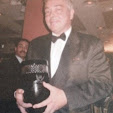21 January, 2012- Present:
Unfortunately, for reasons that were never made clear to, the new
director never arrived, and we once again found ourselves under the rule of OIC/Spokesperson Madnodge
Mounoubai. Although I was de facto his deputy, and had been recommended for a 6
month extension by COS as “irreplaceable,” I was summarily cut out of the loop
on all matters, including replacement of video personnel. Told to submit my own
recommendations in my Mission End Report, I retired from MONUSCO without
further ado on 30 June.
II ISSUES
AND RECOMMENDATIONS:
2.1.
BACKGROUND
Here I
would like to focus on some fundamental communications issues universal to all
missions.
I have been working with film and video for the United Nations since
1976, though hardly exclusively.
During these years, I have noticed a fundamental dilemma afflicting most
UN information efforts - namely, do UN Information agencies produce
news or strategic communications?
This distinction is critical, since it affects the production process
from concept through to consumption.
For reasons both personal and professional. many UN information officers
prefer to think they are doing news rather than strategic communications. This is a fundamental mistake.
For both political and professional reasons, the UN cannot do news. News
requires freedom from political control as well as a high speed production
capacity the UN lacks.
Acceptance of this reality need
not be a handicap. Quite to the contrary. To begin with, the United Nations
is a political organization with political goals. To help achieve these goals,
the UN must develop communications strategies that help convince large segments
of the population that these political goals are in their interest, and are
therefore worth supporting.
In a DPKO Mission like MONUSCO, the administration must determine with
Director PID what key messages should be conveyed, and Director PID should
enlist the creative skills of the entire
Division to determine how to most effectively convey these messages.
This is the way we worked when Kevin Kennedy was Director, P.I.D,
and his approach was very successful. He
gave us the messages, and then challenged us to find the best ways to express
it.
As a result, we all became involved in the task of promoting the
mission, and our attention was focused on finding creative solutions.
We were fortunate in that Kevin was supportive as well as demanding, and
that we felt we could trust both his judgement and his professionalism. If
there was a disagreement, as is bound to happen in creative discussion, there
could be a heated exchange, but it never became personal.
As a result, we felt we could be honest with Kevin, and take risks,
knowing whatever we said would go no further. A noted, we had felt great
pressure from SRSG Doss prior to Kevin’s arrival..
And we knew that Mr. Doss took
great interest in our work. However, thanks to Kevin, we never had any problems
with Mr. Doss after his arrival, and I am eternally grateful to him for that.
Other MONUSCO colleagues were far less fortunate when Mr. Doss was in charge.
2.2: GOOD PRACTISES
Here I would like to single out the Video Unit team for the support they
provided during my tenure. They were all
highly skilled video professionals from a variety of countries, and most of
them were MONUC veterans who taught me a lot about MONUC and the DRC .I was very
lucky to be able to work with them. and I am happy to say I think the feeling
was mutual.
Dedicated professionals are the backbone of any UN Peacekeeping mission,
and all of those responsible for the creation of this group deserve
praise. The only missing link when I
arrived was organization and managerial vision, and, as an experienced film and
television director and producer, I was able to provide both. It was a
remarkably good fit. I knew no one in
P.I.D. prior to arrival, and went through the
standard recruitment process; special mention should be given to
Hamanyoun Mubtakir, who was in charge of MONUC recruitment at that time. When I
was interviewed for the job, I was very much the outside candidate. I managed
to get the job anyway, through a unanimous panel decision. In this case, the
system worked.
Another
successful HR effort was the MDP, or the Management Development Program. I
attended several training programs in the course of my 4 ½ years with the
mission, and the MDP was by far the best. The trainers were external
professionals, and they were true experts on managerial styles and techniques.
Among other things, they emphasized the 360 evaluation to give
supervisors feedback from their staff. I was used to this approach from my work
as a professor in New York, and I found it both educational and at times
humbling. Over the course of my 9 years,
I was fortunate to have good rapport with most of my students. Colleagues who received poor evaluations soon
lost their jobs. In my view, 360 evaluations are an essential tool for any
supervisor who wishes to improve his or her managerial skills.
Unfortunately,
the United Nations system is currently behind the times in this area. At
present, a supervisor need only please his or her supervisor to succeed, and
treat his or her staff as they like. This does not encourage good management
practices.

No comments:
Post a Comment